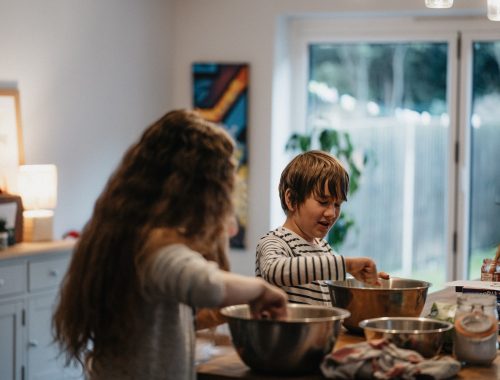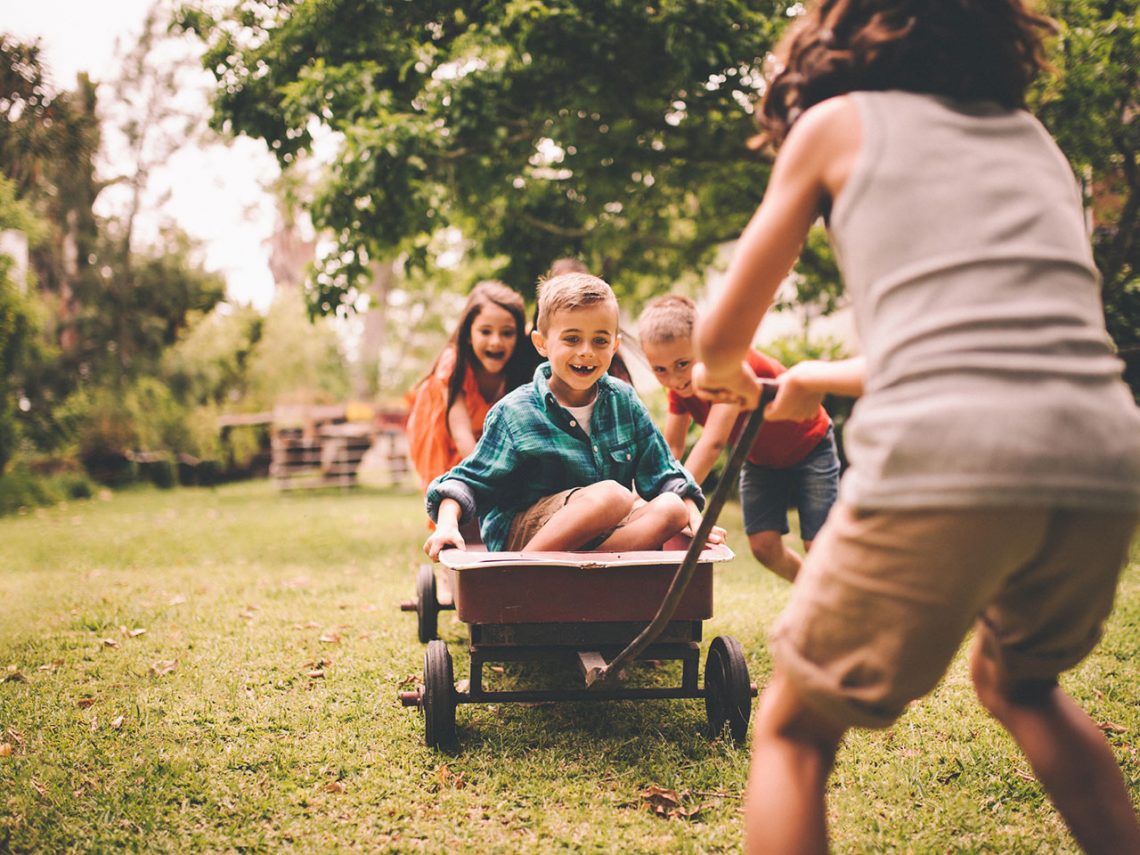
Benefits of Letting Your Children Play Outside
Playing is a very important activity for children. Far from being a simple entertainment or time-passing hobby, playing is of utmost importance for the development of children and is fundamental to their growth. This is why their right to play and leisure is part of the United Nations Convention on the Rights of the Child.
Meanwhile, the United Nations Educational, Scientific and Cultural Organization (UNESCO) states that all children in the world play, and this activity is so essential to their existence that it could be said to be the raison d’être of childhood. The organization stresses that play is vital because it conditions the harmonious development of the body, intelligence, and sensitivity.
In fact, research shows that engaging in early childhood play helps children learn, stimulate their senses and explore. In addition, games and toys can help your kids learn about themselves and develop their personalities in many ways, including emotional, physical, intellectual, creative, and social skills.
While you’re all for the gaming concept, you may be concerned about letting your children play freely outside and get dirty, especially if they’re young. And you’re not alone! Yet, in this article, we’ll dispel some of your doubts and list the benefits of playing in the soil for babies.
Promotes a Connection with Nature

We are becoming more and more confined, and we are not just talking about the lockdowns due to the pandemic here. The increase in violence and the very development of cities have pushed people to stay indoors, even while playing with the kids.
As a result, children’s contact with nature has been reduced. It is important to promote moments where children can play and interact in open spaces, creating connections with nature so that they learn to respect it.
Improves a Child’s Development
Contact with nature stimulates the child’s sense of movement, space, and distances. The opposite occurs when this type of activity is absent, which can lead to psychomotor problems in adulthood, such as difficulty running or jumping, or more serious problems caused by isolation.
Stimulates Creativity
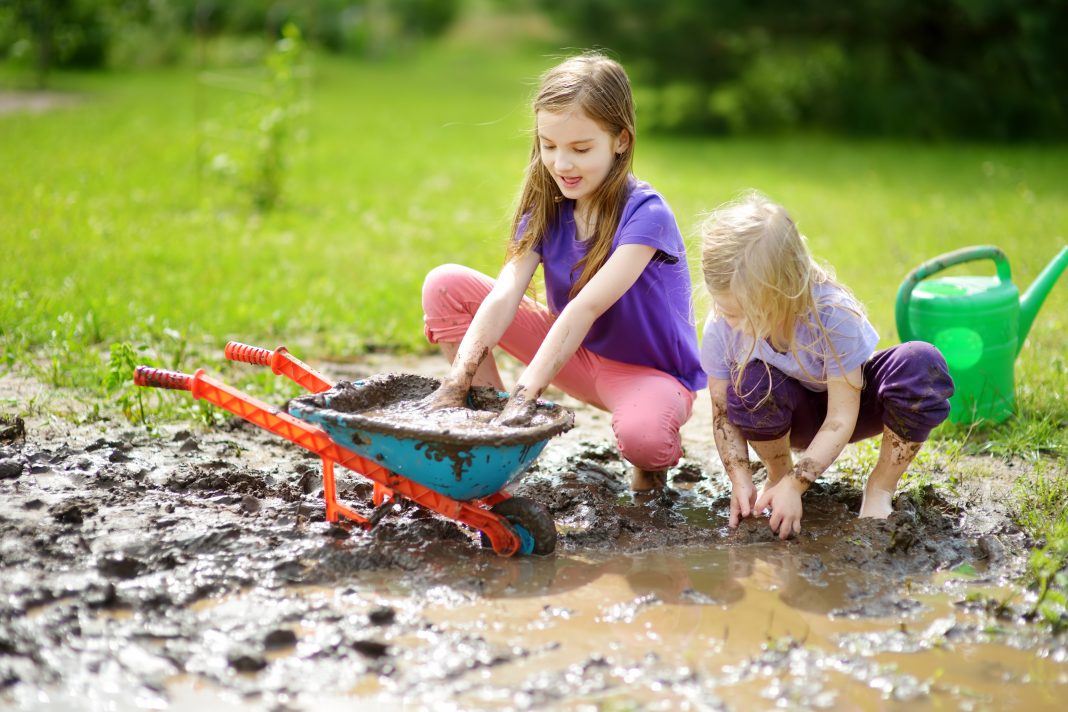
Children are naturally creative. Since they are not yet familiar with everything the world has to offer, their imaginations run wild.
And the elements in nature are perfect for encouraging their creativity. By building castles- even in mud, children can also explore the earth and with twigs, dead leaves – children can reinvent games or toys.
Strengthens the Body
A little dirt can do wonders for a child. Controlled exposure to playing in the dirt makes little ones stronger and healthier, as contact with nature’s microorganisms promotes the development of antibodies.
Thus, the child’s body becomes better able to fight bacteria and germs, which increases the resistance of the little ones to infections. Of course, safety is important. It is always important that an adult supervises the child or at least knows the environment when he/she goes to play in the soil.
Develops Critical Thinking
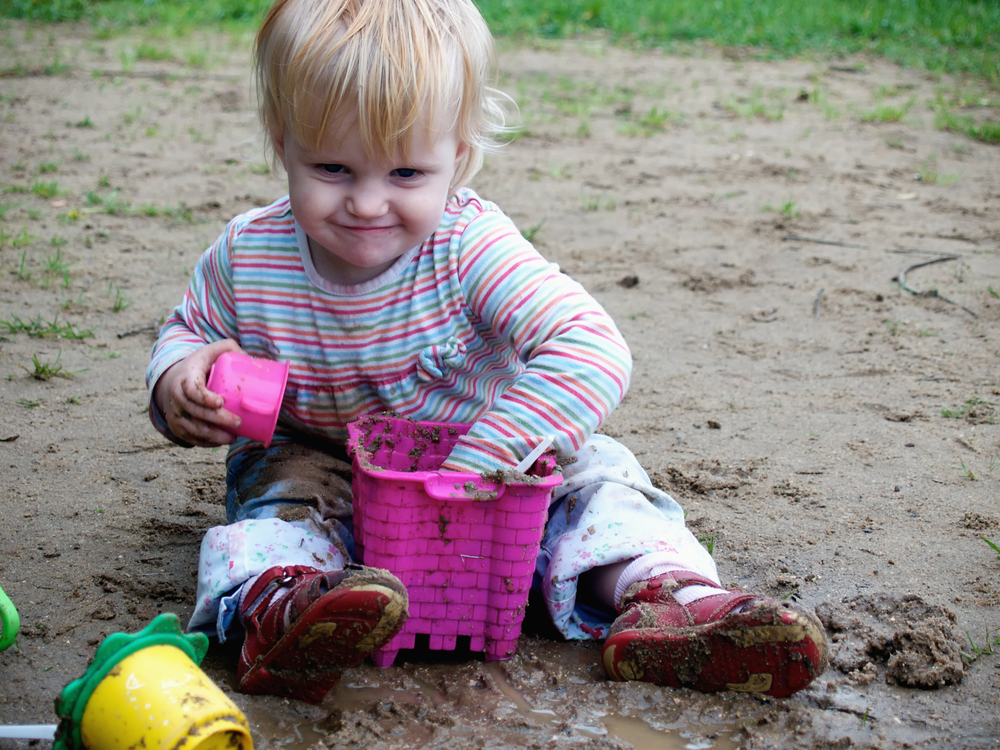
By playing on the floor, children are in contact with the open air and are confronted with the absence of pre-established rules, compared to when they play to indoor games. Children have the opportunity to gradually develop the necessary discernment to understand what they like or not, what they can or cannot do.
In addition, critical thinking also allows children, by evaluating their environment, to learn to make hypotheses and solve questions. They will realize that if there is dirt on their clothes, they will have to change them, and they will slowly learn to plan their play and identify possibilities.
A Formula for a Happy Childhood
Some studies even show that experiences with nature, along with family and friends, allow children to grow in a happy environment. Not only can little ones learn to explore their surroundings but they also develop close relationships with people who create a bond with them while playing.
So you’re ready to let your child play outside, but of course with moderate monitoring? Let us know your thoughts about it in the comments below.
You May Also Like

8 Winter Clothes for Baby
2022-10-04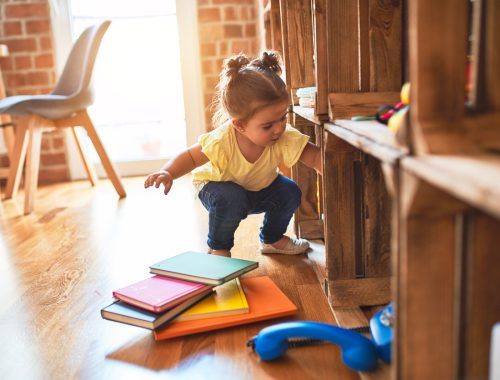
Child Safety: Preventing Accidents In The House
2021-12-02